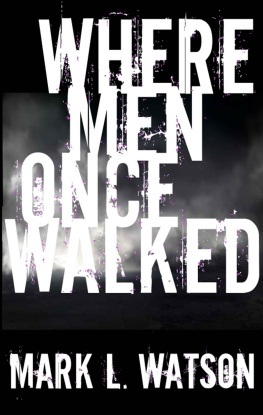Stress and Old Age
Stress and Old Age
A Case Study of Black Aging and Transplantation Shock
Wilbur H. Watson
First published 1980 by Transaction Publishers
Published 2017 by Routledge
2 Park Square, Milton Park, Abingdon, Oxon OX14 4RN
711 ThirdAvenue, New York, NY 10017, USA
Routledge is an imprint of the Taylor & Francis Group, an informa business
Copyright 1980 by Taylor & Francis
Original copyright 1978 by Wilbur H. Watson.
All rights reserved. No part of this book may be reprinted or reproduced or utilised in any form or by any electronic, mechanical, or other means, now known or hereafter invented, including photocopying and recording, or in any information storage or retrieval system, without permission in writing from the publishers.
Notice:
Product or corporate names may be trademarks or registered trademarks, and are used only for identification and explanation without intent to infringe.
Library of Congress Catalog Number: 79:65127
Library of Congress Cataloging in Publication Data
Watson, Wilbur H.
Stress and old age.
Includes index.
I. Relocation (Housing)-United States-Psychological
aspectsCase studies. 2. Afro-American agedHousing
United States. I. Title.
HD7293.W34 301.54 79-65127
ISBN 0-87855-296-0
ISBN 13: 978-0-87855-296-2 (hbk)
In Memory of
HOBART C. JACKSON
1916 1978
and
for Stephan, Sheryl,
and their peers;
they are
the hope of our future
Contents
List of Tables
List of Figures
It is a distinct pleasure to comment on this publication by my friend and colleague, Dr. Wilbur Watson, having to do with Stress and Old AgeA Case Study of Black Aging and Transplantation Shock.
First of all, we want to thank and congratulate Dr. Watson for the very comprehensive study he has developed and for the initiative he exercised throughout this project. We are indeed indebted to him. In addition, our deep appreciation is also expressed to the Andrus Foundation of the National Retired Teachers Association and the American Association of Retired Persons for the funding of this important research.
As executive vice president and director of the facility whose residents were transferred out or transplanted, there are several observations related to the process that will perhaps give some additional perspective to why and how it all started.
By all means, it should be pointed out and emphasized that the conditions or criteria responsible for initiating the transplantation procedures were imposed from the outside by the invoking of new federal and state codes and regulations.
When one assesses the plight of the minority elderly (and more particularly that of the black elderly who were involved in this study) with reference to access to good institutional care, it becomes clear that the invoking of new codes and regulations can easily become a very punitive undertaking, unless financial and/or other resources are made available to facilitate compliance with the new standards. To clarify our position further, we do not object to mandating compliance with the standards. But unless resources accompany such mandates, this usually means terminating the facility. In light of the shortages of facilities catering to minorities and the poor, closing these types of facilities results in the further erosion of an already woefully inadequate service in these communities.
Very few minority elderly, on a proportionate basis, reside in nursing homes and homes for the aged. Most of the non-profit, church-related homes tend to serve and give priority to special populations, which do not include minorities. Most proprietary homes do not accept a high proportion of Medicaid recipients and are, in general, too expensive for minorities and the poor to afford. Those minorities who are able to achieve access usually find themselves shunted to county governmental institutions or state mental hospitals. However, most would prefer to have access to those services in their own communities. It is unfortunate that institutions such as Griot House, where an older black person can stay in his or her community and receive needed care and services, are so few in number in the United States.
Fortunately, at Griot House we were able to secure some needed federal and state help to build a replacement facility. Unfortunately, no special funds were made available to cover the high costs associated with the relocation effort. Already victimized by less than a cost reimbursement rate for Medicaid recipients, who constitute ninety-eight percent of the homes occupancy, we found that the additional burden of some $175,000 in relocation costs over a two year period was, to say the least, overwhelming. We are still attempting to recover from that devastating financial setback.
We do feel strongly that the competence, patience, and concern of our staff in working with the relocation effort, the commitment to finding places that embraced our social philosophy and point of view, as well as the assurances we provided that all residents transferred would receive top priority for readmission once our new building was completed, contributed to the residents sense of acceptance of the move and to their sense of well-being and security in connection with the transfer.
There is a need for further study of similar situations to determine whether there are significant differences between the capacities of black and white elderly in making satisfactory adjustments to changes of this type.
Hobart C. Jackson
Philadelphia, Pennsylvania
November, 1977
In the study of the effects of residential relocation on elderly people, transplantation shock is a major subtopic. Transplantation shock means any sign of distress expressed by an individual and/or group (for example, by sharp decreases in level of morale), and higher frequencies of illness and death following relocation from an established place of residence to a new setting. The extent to which relocation is forced or voluntary, and the prerelocation levels of physical and mental health of the target persons are important factors, identified through previous research, that helped to explain variations in personal adjustment to this kind of change in social and spatial environment.
By its focus on signs of post-relocation mortality, psychosocial distress, and coping behavior in two groups of inner-city elderly black people, this study:
provides new insight, and helps to fill the informational void created by the lack of research on relocation effects upon the minority elderly
provides new insight into distinctions between survivors and nonsurvivors of the distressful effects of relocation, by focusing on various sociological factors not previously examined or given only scant attention
develops policy implications for training direct-care workers and managers of long-term care institutions, who face the prospect of relocating large numbers of racially homogeneous and mixed resident populations, but who have not yet come to grips with the many ramifications associated with the relocation of elderly, infirm, poor people.













